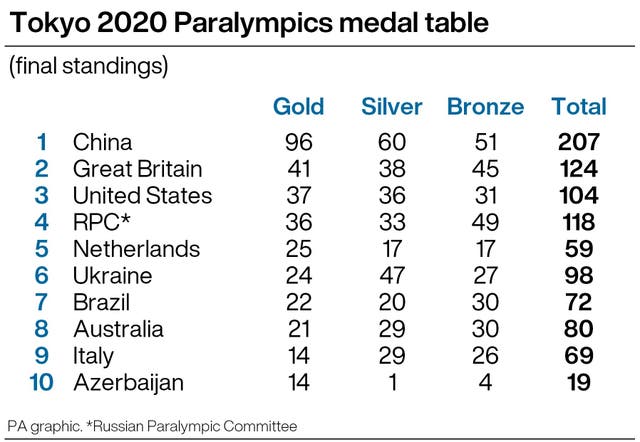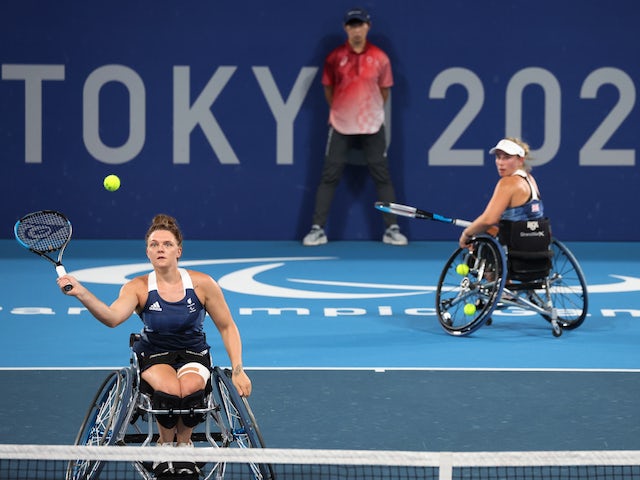The Paralympics is under too much pressure to drive up activity levels among disabled people when factors closer to home are usually more decisive, according to the head of an organisation focused on making sport more inclusive.
Tokyo 2020 ended on Sunday and were again a phenomenal success from a British perspective, with the team claiming 124 medals in total across more sports than ever before – 18.
Prime Minister Boris Johnson lauded the athletes' achievements and how inspirational their performances had been.
I would like to thank the Japanese people for playing such fantastic hosts to our Olympic and Paralympic teams this summer. The challenges of COVID have not been easy, but you have brought people and nations together and inspired millions to get active. Thank you! — Boris Johnson (@BorisJohnson) September 6, 2021
However, Activity Alliance chief executive Barry Horne believes it is the everyday interactions that disabled people have and the wider attitudes towards disability in society which are more likely to help close the inactivity gap between disabled and non-disabled people.
"I think sometimes the Paralympics is under too much pressure to be responsible for changing behaviour," Horne told the PA news agency.
"We should just enjoy it for the wonderful spectacle that it's been. Our research tells us disabled people are more likely to be inspired and influenced by a member of their family, by a neighbour or by a GP who has thought through the process of actively advocating sports and activity.
"They're the real things that actually resonate with a significant number of disabled people who are not traditionally active and don't see themselves as being Paralympian."

Disabled people are twice as likely to be inactive compared to those without a disability, according to a survey by Activity Alliance in February, and gains made in closing that gap in the latter years of the 2010s have been reversed by the coronavirus pandemic, its research shows.
Horne believes the progress pre-pandemic meant within a generation there was a prospect of participation in sport being equal for all, but believes there is a real risk of that timeline slipping because of Covid without the right response.
"The reduction in activity levels was particularly stark," Horne said.
"There is a real risk that we are set back, that the impact of the pandemic means that it's longer than a generation (until the activity gap is closed).
Tokyo Paralympic Games begin today. Our CEO @ActivityBarryH writes on the wider barriers that prevent so many disabled people from accessing an active lifestyle. He also explores why we cannot wait for and rely on a legacy to solve the issues #Paralympics https://t.co/Sv829FXIMP pic.twitter.com/sl4IodKfyi — Activity Alliance (@AllForActivity) August 24, 2021
"There is some cause for optimism in terms of attitude change and embedding inclusive practices. The attitudes towards disabled people and activities has been a key enabler, and the Paralympics really does help with that.
"It's just starting to normalise people's thoughts of disabled people devoted in sport. What we need to do is get that running right across society and not just think about these spectacularly impressive performances and think about everyday involvement, and I think we've still got a long way to go.
"Sometimes in the past we talked about physical barriers – no ramps at leisure centres for instance – but now it's more about the logistics of getting to an activity, and the biggest barrier of all is psychological, whether that is the activity provider, wider society or disabled people themselves. It can be something as simple as how an activity is communicated.
"When a leisure centre puts a poster up advocating people to join, does the imagery there suggest that's relevant to me as a disabled person?"
:: Activity Alliance, the leading voice for disabled people in sport and activity, has advice and resources for providers and those wanting to get active. Visit www.activityalliance.org.uk to find out more.







